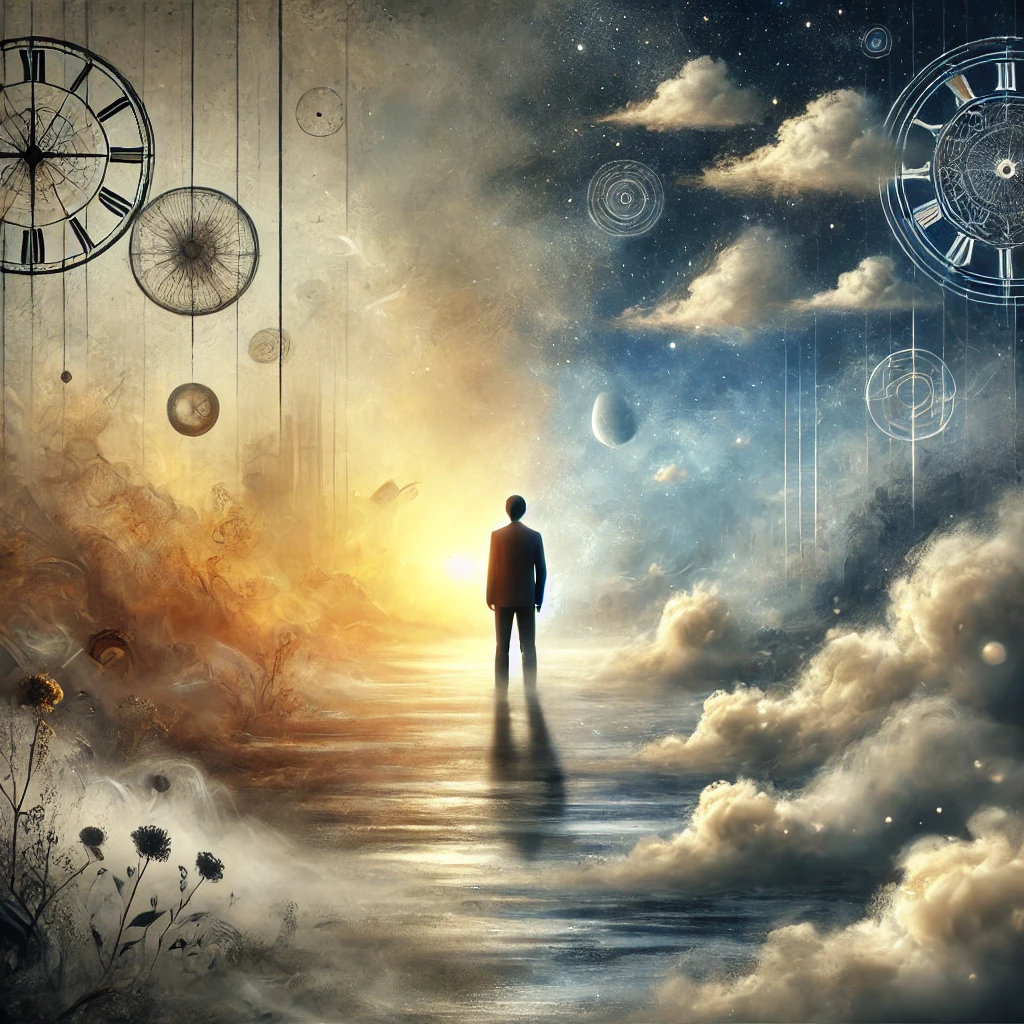
An image illustrating the indistinguishability of waking and dreaming
Philosophical Foundations
“I see so plainly that there are no definitive signs by which to distinguish being awake from being asleep.” (Descartes)
Ancient Scepticism
- The ancient Greek school of scepticism, particularly Pyrrho of Elis, argued that humans cannot attain certain knowledge due to the limitations of perception and reasoning.
- Quote: “Nothing is certain, not even this” (Pyrrho of Elis, as summarized by later sources).
- Pyrrho’s scepticism suggests that all experiences and judgments are subjective and potentially unreliable.
Descartes and the Cogito
- René Descartes’ Meditations on First Philosophy is famous for doubting everything, including the reality of sensory experience, until he arrived at the famous assertion: Cogito, ergo sum (“I think, therefore I am”).
- While Descartes ultimately argued for the existence of a rational foundation for knowledge, his methodological scepticism highlights how easily perception can be doubted.
- Quote: “I see so plainly that there are no definitive signs by which to distinguish being awake from being asleep.” (Descartes, Meditations).
Kant and the Noumenal World
- Immanuel Kant distinguished between the phenomenal world (what we perceive) and the noumenal world (the thing-in-itself, which we cannot directly know). According to Kant, our understanding is limited by the frameworks of space, time, and causality imposed by the mind.
- Quote: “We can only know appearances, and not how things are in themselves.” (Kant, Critique of Pure Reason).
phenomenology and Subjectivity
- Edmund Husserl and phenomenologists explored the structures of subjective experience, emphasizing that our engagement with the world is always filtered through perception and consciousness.
- This tradition focuses on the “intentionality” of consciousness, suggesting that reality as we experience it is inseparable from the act of experiencing.
Modern Scepticism and Solipsism
Solipsism extends the argument by positing that only one’s mind is certain to exist, making the external world a potential illusion.
Ludwig Wittgenstein approached this issue by suggesting that language itself shapes our reality and that some questions about the external world are nonsensical within our linguistic frameworks.
Quote: “The limits of my language mean the limits of my world.” (Wittgenstein, Tractatus Logico-Philosophicus).
Simulation Hypothesis and Contemporary Thought
- Modern discussions, such as Nick Bostrom’s simulation hypothesis, propose that it is plausible we are living in a computer-generated reality (Simulation Theory), further challenging notions of provable reality.
- Elon Musk famously summarized this idea: “There’s a billion to one chance we’re living in base reality.”
Establishing Significance
The understanding that all sensory and intellectual experiences may be imaginative or illusory underscores the precariousness of human knowledge. Denying this can lead to delusion because it assumes certainty where none can be rationally justified.



0 Comments